|
An old woman went to visit a married daughter who lived with her husband’s mother. After the meal was over, a gust of wind blew out the lamp and the three women were left in darkness. The mother-in-law spoke. “Please sit still. I will go and light the lamp,” but as she was speaking, the daughter took the lamp and went to light it.
Thinking the mother-in-law was gone, the mother talked with her daughter about how the food wasn’t hot enough, the bed too soft, and everything else that wasn’t quite right. When the light reappeared, she discovered to her dismay she’d been speaking to the mother-in-law, not her daughter. Horrified by her blunder, she tried to recover. “I have always had a curious peculiarity,” she said. “When light suddenly disappears, and I am in the dark, my mind wanders and I speak without knowing what I say until the light reappears.” “Ah,” responded the mother-in-law. “I completely understand. I too have a curious peculiarity. Whenever the lamp goes out and the light disappears, I become totally deaf and only recover my hearing when the lamp is lit and light reappears.
2 Comments
A long time ago there was a farmer who loved horses. When his favorite mare ran away he was sad, but when villagers came to sympathize he told them, “Yes, I have lost my horse but who knows what will happen. All we can do is wait.”
A few months later, the mare returned with a stallion and his neighbors congratulated him on his good luck. “Yes, this seems like good fortune, but who knows?” One day, while he was riding the stallion, he fell and broke his hip. People gathered round to help him, commiserating, lamenting his bad fortune. He shrugged. “No one can tell the future.” Shortly after, the area was attacked by marauders and all able-bodied men were conscripted to serve, but the farmer’s bad hip kept him safe from the fighting. Few returned home. In years to come, whenever someone sympathized or rejoiced with him, his only response was, “Let us see what happens. You never can tell.” In the beginning, neither day nor night existed. No one knew about dreams. No one knew what it was like to bask in the warmth of the sun or watch the moon wax and wane. People didn’t miss what they didn’t know, yet not everyone was satisfied with the way things were.
In one village, there lived a chief who heard that somewhere in the distance there was a man who kept the light. Deciding on a plan, the chief said to his oldest daughter, “Find the man who keeps the light and bring some light back to me. He blew on her face so that the hebus of the bush, water, and sky would help keep her safe. The young woman packed a small sack and left. When she came to a place of many roads she didn’t know which road to take, nor did she know how to choose, She walked down a road with many trees and came to the house of Deer who greeted her warmly. She stayed with him, enjoying their time together, but she remembered her father’s request and soon went home. She told her father she had not found the Lightkeeper. The chief decided to send his younger daughter. “Find the man who keeps the light and bring some light back to me.” He blew the hebus on her face and played his flute, wishing her well. The younger daughter soon left, and, like her older sister, came to a place of many roads. She stopped, not knowing which one to take, In the distance, she thought she heard the sounds of her father’s flute. As she listened, she began to have feelings about the roads, as if they had faces. She chose the one that seemed strong and old. After walking for a long time, she came to the house of the Light keeper. He was as young as the road seemed old, and just as strong. “Who are you?” asked the Lightkeeper. “I am the younger daughter of a village chief. I have come to get some light from you.” “I have been waiting for you,” he replied. “Now that you have come, please stay with me for a while and I will show you the box of light. He picked up a box woven of itiriti leaves. Carefully, he opened it so that the dreams inside would not spill out. The young woman, seeing light for the first time, was awed by its brilliance. The light keeper then closed the box and offered her a meal. For many days, the Lightkeeper opened the box made of itiriti leaves so they could enjoy themselves, but in time the young woman remembered her promise to bring back some light from the Lightkeeper’s box. As a present, he gave her the itiriti box filled with light and dreams. Taking great care of the box, the chief’s younger daughter traveled home to a joyful welcome from her sister and father. After showing them the dreams and light contained in the box their father decided it should be shared and hung the box from the highest roof beam. People from nearby villages heard that a family near the river had light and came to see it. At first, they were welcomed and fed and given places to sleep, but in time, the chief and his daughters grew tired of the throngs of people who gathered in and around their house. They decided everyone everywhere had a right to the light. The chief flung the box of woven itiriti leaves into the sky. The body of light flew to the East and became Sun. The box tumbled to the West. Thus, were light and dreams brought to the world for people to enjoy them. The day began like any other in the small village. People worked, ate, talked to their neighbors, but they were not too busy to noticed the arrival of a beautiful bird no one had seen before. Then, life changed quickly. Whatever people planted during the day was gone the next morning. Each day there were fewer chickens, goats, and sheep. Even during the day, the huge bird found its way into the storehouses and ate its fill of grains. Would there be anything left for people to eat in the winter? Now no one and nothing was safe.
The villagers were shocked. Stunned. Afraid. No one knew what to do. The bird was so quick it evaded arrows and stones and traps. The headman of the village told the strongest and wisest men, “Sharpen your axes and machetes. Go cut down the tree on which the huge bird perches.” At first all went well. The sharp blades cut into the tree. It began to shake. Suddenly the bird emerged, almost too beautiful to look at, and began singing a song so sweet, so full of stories about places the men had never been and would never go, they fell to their knees, enchanted and bewitched. The men’s hands could no longer hold their axes and machetes. They lost their urge to kill the bird. When the sun went down, they returned to the headman and told him they could not harm a bird that sang so beautifully. The headman was furious. He gathered the young men together. “Go and do what the stronger and wiser men could not. Surely you are brave enough to outwit this bird that is devastating our village.” The young men set out, pleased to be asked to do what their elders could not. At first, their axes and machetes bit deeply into the trunk of the tree. Then, as if by magic, the bird appeared, more beautiful than the day before, singing a song of love and courage, of the wondrous adventures the young men could have. As before, entranced by the bird’s song, the young men’s hands became weak, their axes and machetes fell from their hands. When the sun went down, they too returned to the headman, embarrassed and ashamed. The headman was beside himself with fury and worry and fear. Now who could he send? Certainly not the women—they would marvel at the beauty of the bird, the wonder of its song. They would feel sorry for the tree. This left only the children. He would have to send them. Perhaps if they worked together they could defeat the bird. Early the next morning, the headman took the children to the forest to the tree where the bird lived. He told them to shut their ears, not look up, and pay attention, to do what he told them to do. The children lifted the heavy axes and machetes and went to work. When the beautiful bird emerged from the leaves the headman heard its song and his hands grew too weak to hold his ax. Intent on what they were doing, and proud to be asked to do what the wisest and strongest men could not, what the brave younger men could not, the children did not look at the bird, nor did they listen to its song as they chopped away. When the tree fell to the ground the bird crashed with it, crushed by the weight of the branches. People heard what the children had accomplished and rushed to the forest. A great feast was held to honor them. In years to come, people told stories about the children who saved the village when the wisest and strongest and bravest could not. In a time long ago and a place far away, there lived a king, queen, and their son, the prince. The king and queen made sure he had the best teachers and the most knowledgeable sages to instruct him in all that he should know in order to be a wise and kind ruler when he became king.
One day, the prince began to act like a rooster. He took off all his clothes, flapped his arms as if they were wings, began to crow, and stopped speaking the language of the kingdom. He refused to eat anything but corn from the floor, under the table, all by himself. The king and queen were very upset and called in the best doctors and healers, begging them to treat the prince, to turn him back into a man, but nothing anyone did made a difference. The roosterprince continued to crow and flap his arms, hop around the palace, and eat under the table. Just when the king and queen had given up all hope, an old man came to the palace and said, “Your Majesty, I would like to try to cure the prince.” The king asked, “Where are your medicines and potions? What is your plan?” The old man replied, “I have my own ways. Allow me seven days with the prince. All I ask is that you leave us alone and make no comment, even if my requests appear strange.” Reluctantly, the king and queen agreed to let the old man try. They brought the old man to the prince and left the room. The first thing he did was to take off his clothing, jump under the table, and sit opposite the roosterprince who stared at the old man for a long time. The old man was patient and said nothing. “Who are you and what are you doing here?” crowed the roosterprince. “I’m a rooster. Can’t you see that?” answered the old man using the prince’s language. “Oh, I’m a rooster, too. Welcome,” replied the prince. Time passed and the two companionably crowed and flapped their arms. The next day, the old man got out from under the table and began to walk around, a little straighter each time he circled the table. The roosterprince had grown so fond of the man he began to follow him, hopping wherever they went. The next day, the man put on a shirt and a pair of trousers. “What are you wearing, my friend,” asked the roosterprince. “Roosters don’t wear clothing.” “You’re right dear prince, but I was a bit chilled. However, I assure you, you can still be a good rooster, even with clothes on. Try it.” The roosterprince put on a shirt and a pair of trousers and continued crowing and flapping his arms. On the third day the man sat at the table and ate some corn from a golden platter. When the roosterprince joined him and started eating, the man signaled to the servants, and soon the table was set with silverware, goblets, golden plates, and platters of delicious food. When the old man began to eat, using a fork, a knife, and a spoon, the prince imitated him. After they had eaten a whole meal, the roosterprince crowed happily. The following night, the man went to sleep—on a bed, once again assuring the roosterprince, “Don’t worry, my prince, you can be a good rooster even if you sleep in a bed, so the roosterprince slept each night in a bed and ate at the table. Soon after, the man began to discuss the philosophy of life with the roosterprince, but he objected. “Wait a minute! Roosters don’t have to think, and they certainly don’t have to debate the merits of a way of life.” “You may be right,” agreed the old man, “but you can be a good rooster and still engage in discussion. After all, you know you’re a rooster and that’s what matters.” The roosterprince thought this over and began to discuss philosophical ideas with the man. On the seventh day, the old man bid farewell to the roosterprince. Before he left, he said, “Please remember—roosters are fair game for hunters so always pretend you are a human prince. This way you will live a long and interesting life. Act wisely and help others. Farewell, dear roosterprince.” In time, when he became king, ruling over the kingdom, no one beside himself knew that he was still a rooster. There was once a king and queen who lived happily together until the king and his men were captured in battle. After three years, the king found a way to send his wife a message, commanding her to raise a large army and money for ransom to secure his release and that of his men.
The queen thought the plan was not sensible. Too many months would pass before she could raise the money to fund an army and pay the ransom. She decided to make her own plan. Without telling the king’s advisors, she transformed herself from queen to troubadour. Taking only her lute, she started to walk. After a short time she met up with a band of pilgrims who invited her to join them. Two monks began crossing a torrential river. At the midpoint they encountered a young woman who was struggling to stay above the water. One of the monks lifted her up, put her on his back, and carried her to safety on the far bank. They bowed to each other in thanks, then the two monks went on their way.
Shortly after they began walking, the monk who hadn’t carried the girl berated his fellow monk. “You carried a woman on your back. You’ve broken your vows. How can you live with yourself? How can you keep being a monk?” He replied. “I carried a woman to safety. I put her down and began walking. You’re still carrying her.” It was very far, this small village. So far that one could not find the way back in a day. This is where Anniko found herself.
Anniko leaned her tired body against the tree. She knew her village was a great distance from where she was, yet she did not know where to find another village. In her loneliness, she looked up at the bird whose song she had followed. It was a lovely song, so lovely she had forgotten to look where she was going. Now, watching the sun leave, she shivered, knowing night would soon come. To keep herself safe from wild animals that roamed at night she climbed up into a tree. When she heard the roar of a lion circling the trunk of the tree she wished more than ever she had never left her village. The return of the sun’s warmth woke her, welcoming her to the new day. When she looked around she knew she was lost. Afraid of walking in circles, she decided to follow the path of the sun. Just before dusk, she came to a strange and unknown village. Anniko and the villagers stared at each other, amazed. She had never seen people with long necks. They had never seen a person with a short neck. They might have stared at each other until the sun went down but Anniko was hungry and thirsty and tired. “Please,” she asked, “might I have something to eat and drink?” Overcoming their astonishment, the villagers gave her food, water, and a mat on which to sleep. The next morning, Anniko rose with the sun. As she had done every morning in her village, she sang a song to welcome the day. Once again the People of the Long Necks were filled with wonder. They had never heard such beautiful sounds. Anniko was happy they liked her music and offered to help with the day’s chores. As she worked, she sang, easing their effort. Although the villagers and Anniko grew to be fond of each other, there was one man who did not like her. He especially did not like to hear Anniko sing and waited for an opportunity to get rid of her. One day, when Anniko was alone, sitting in the sun, combing her hair, he quietly crept up behind her. After looking around to make sure no one was nearby, he confronted her. “You are ruining our village. If you stay here we can no longer be known as the People of the Long Necks for you have a short neck and you will never have a long neck. You need to leave our village, now!” Anniko was too upset to say anything. Perhaps the others think as he does but were too kind to tell me, she thought. With the man’s words ringing in her ear, Anniko quickly left the village. That evening, the villagers gathered to hear the song Anniko sang to greet the evening but they heard no song. “Where is Anniko?” they asked. No one knew. The man said nothing, pleased with the quiet. When the villagers began to leave there was one who said, “I think I know the person we should ask. Follow me!” They went to the house of the man and asked, “Where is Anniko?” At first he denied knowing what they meant, but the villagers kept asking. “All right,” he said, “I will tell you. Anniko does not belong in our village. We are the People of the Long Necks. She has a short neck. If she lives with us, we can no longer say we are the People of the Long Necks. Listen to me, I am right. Let her be wherever she is. We don’t need her to spoil our ways and we don’t need her songs. We did well enough before she came.” But the villagers missed Anniko. They had grown fond of her singing and helpful ways. They decided to go into the forest to look for her even though they had no idea where she might have gone. After they had been looking for a long time, one of the villagers suggested, “Perhaps we could sing to her as she sang to us. Perhaps she will hear our singing and we will find each other.” Although everyone thought this was a good idea, they looked at each other, puzzled. No one knew how to sing. But they wanted to find Anniko so badly they decided to try. Their first sounds were noises, more like screeches and squawks than song. They put their hands over their ears and kept trying. Finally, they decided it was too hard to learn to sing and to sing a song so they simply chanted, “Anniko. Anniko. We are here. Anniko.” There was no response but they kept chanting. “Anniko. Anniko. We are here. Anniko.” Although they heard nothing, they kept chanting, “Anniko. Anniko. We are here. Anniko.” Then, in the distance, they thought they heard a sweet sound. A song. Listening intently, they followed the sound, walking toward what they heard. The song got louder and louder until the villagers and Anniko were face to face. They greeted her joyfully, but she remembered the words of the man and remained quiet. The villagers understood. “Never mind what that man said. We want you to stay in our village. We are the People of the Long Necks and we will always be so. Your presence does not change this. Your songs lift our spirits and fill our hearts with happiness. Please, come back with us. Please, stay with us.” Anniko looked at the villagers and saw they spoke the truth. Holding her head high, she sang to them as they left the forest and made their way home. There was once a poor tailor. Though he had made many coats for many people, he never made one for himself though he wanted one.
One day he decided to save whatever money he earned so he could buy himself material for a coat. Little by little, and bit by bit, he finally had enough money to buy what he needed to make his coat. He brought the material back to his shop and cut it out very carefully so as not to waste any of it. The thought of having a new coat was so pleasurable he worked on it all through the night. When morning came, he had a new coat to put on. Satisfied with his effort, he wore the coat until it was in tatters. One day he looked at the worn-out coat and thought if he was careful, he could cut a jacket from the less worn bits of the coat. And so he did. He wore the jacket until it too was in tatters. One day he looked at it and thought if he was very careful he could cut a vest from the jacket. And so he did. From the vest came a cap. From the cap came two pockets. From the pockets came some buttons. From the buttons there was just enough material to make a story. A long time ago people discovered that the lorikeet, a small, intelligent bird, could speak with little teaching. Not only was she able to repeat what she heard, she could also give voice to her own thoughts.
One day, a farmer working in his rice fields saw his neighbor's buffalo. The hungry farmer, killed the buffalo, cut up the animal, made a fine meal for himself and hid what he could not eat. His neighbor came by and asked, "Have you seen my buffalo?" The man said, "No." The lorikeet flew to the neighbor and said, “He has killed and eaten part of your buffalo. The rest he has hidden in his fields and rice house." The neighbor looked and saw the meat, just as the bird foretold. He asked the farmer whose meat it was. The farmer said, "This is not your buffalo meat. This is my meat." The lorikeet repeated her words. "He has killed and eaten part of your buffalo. The rest he has hidden in his fields and rice house. The neighbor was puzzled and wondered who was speaking the truth so he asked the magistrate to hear the case the following day. The farmer was clever. He covered the lorikeet's cage with a huge pot. All night he beat on the pot to make the sounds of thunder. He poured water over the pot to create rain. He shook the pot to make it feel very windy. In the morning, the farmer took the bird and appeared in court. The bird told her story. The judge was impressed by the bird's intelligence and clarity. The farmer spoke, "The bird speaks well, but she speaks nonsense. Ask her to describe last night's weather." The judge agreed. The lorikeet replied, "Last night we had a ferocious storm with much thunder, heavy rains and a strong wind." "You see," said the farmer. "She speaks well but she speaks nonsense." The judge spoke, "It is true. Last night was calm and clear. Case dismissed." The lorikeet was exiled to the forest where she lived as she had before she knew people. One day in the forest, she saw a new bird covered with brilliantly colored feathers. She questioned the bird. "Who are you? Why are you here?" The bird preened and spoke, "I have come from another country, but I will live here. I speak the language of people." "The lorikeet said, "I welcome you with some advice. If you would speak to people, let them teach you what to say. People are not interested in truth or wisdom. They wish to hear only their own words. And so it is. Parrots repeat what they are taught. People are content. |
World TalesAge old stories of wit and wisdom from around the world. Tales retold by Nancy King. Archives
February 2024
Categories |
Copyright © Nancy King 2020 | Site Design by Angulo Marketing & Design
|
|
Nancy King is a widely published author and a professor emerita at the University of Delaware, where she has taught theater, drama, playwriting, creative writing, and multidisciplinary studies with an emphasis on world literature. She has published seven previous works of nonfiction and five novels. Her new memoir, Breaking the Silence, explores the power of stories in healing from trauma and abuse. Her career has emphasized the use of her own experience in being silenced to encourage students to find their voices and to express their thoughts, feelings, and experiences with authenticity, as a way to add meaning to their lives.
|

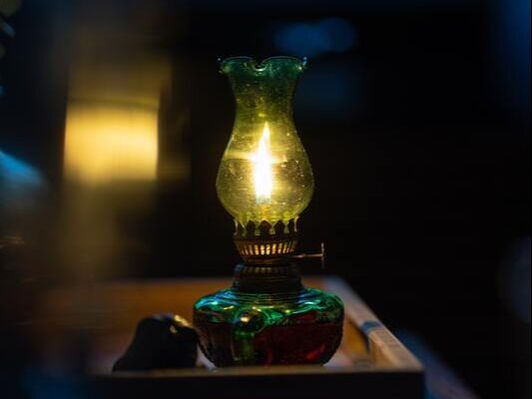
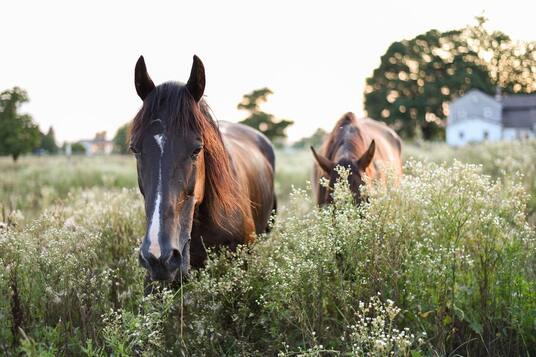

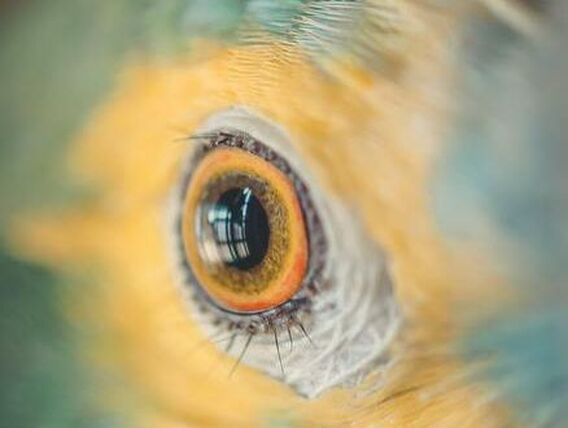
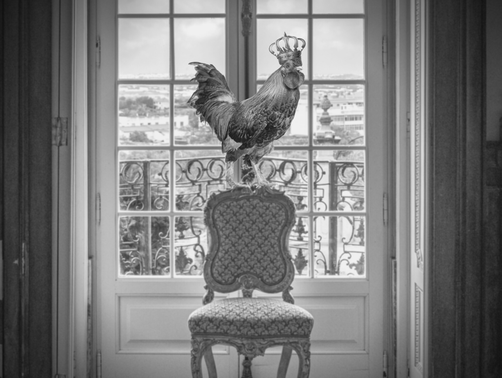



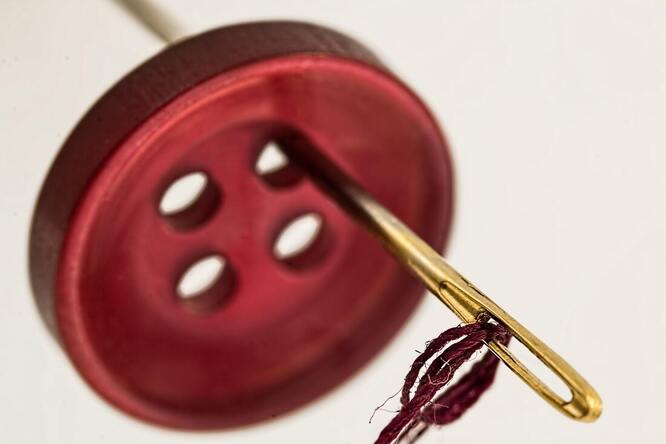
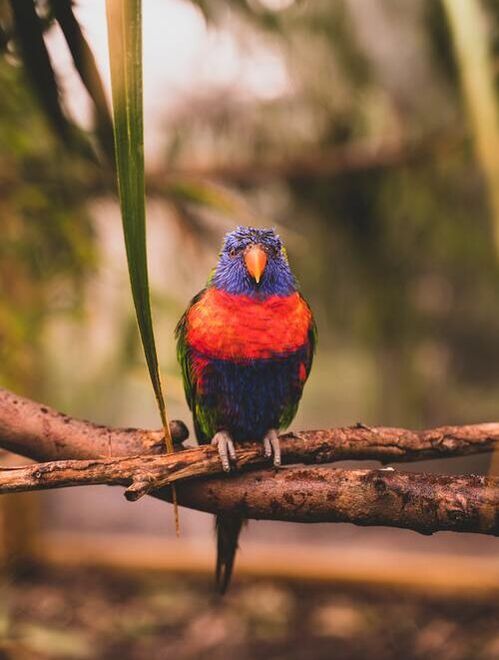
 RSS Feed
RSS Feed